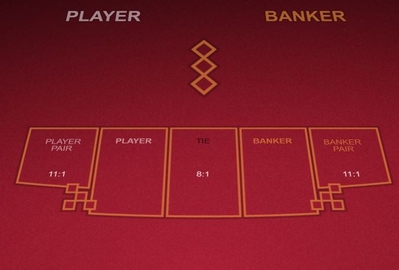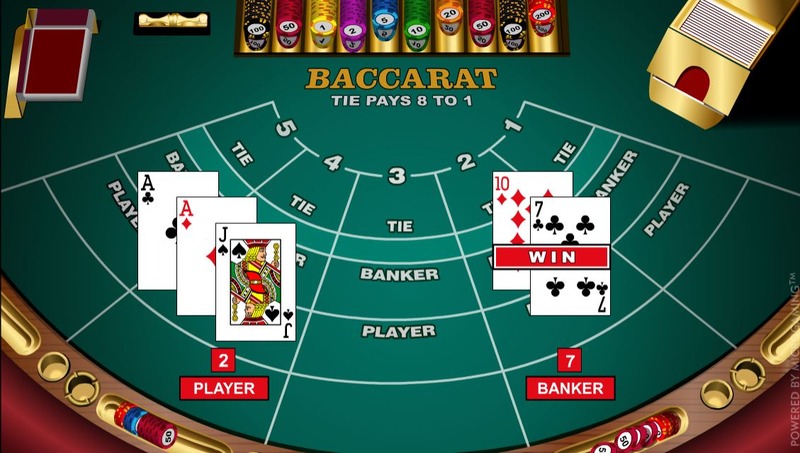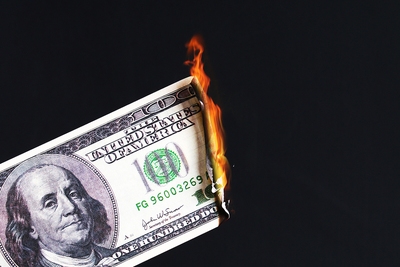 Baccarat is a classic casino game and whilst it is not anywhere near as popular or as well-known as blackjack, roulette, poker or slots, it certainly has its fair share of fans. In fact, none other than James Bond is a fan of Punto Banco and Chemin de Fer (both forms of baccarat) and you can see 007 playing the game in a number of films including Dr No and Goldeneye.
Baccarat is a classic casino game and whilst it is not anywhere near as popular or as well-known as blackjack, roulette, poker or slots, it certainly has its fair share of fans. In fact, none other than James Bond is a fan of Punto Banco and Chemin de Fer (both forms of baccarat) and you can see 007 playing the game in a number of films including Dr No and Goldeneye.
If you watched Bond, or the high rollers in Macau and other Asian gambling hot spots where the game is hugely popular, it would be easy to assume that baccarat involves a great deal of skill and daring. In fact, it is not unfair to say there is no skill involved at all and, actually, it is one of the simplest games you will see in the casino, be it online or in the real world.
As played in almost all online casinos, this game is, in fact, little more than a coin toss dressed in very elegant clothing. There are just two main options (there is a third but this is a terrible bet, as we shall discuss later) and so the obvious question for baccarat newcomers is: which of these two options is the better bet?
Baccarat: Bet On Player Or Banker?
The main decision, in fact the only real decision, to make when playing baccarat is whether to back the player or the banker. Dealing and any decision-making about whether to hit or stand are all automatic and so all you have to do is choose whether you want to bet on the bank or the player to win.
Thankfully, unlike many things in life, there is a clear, simple and undeniably correct answer. The house edge backing the player is 1.24% whilst for the banker, it is 1.06%. The house edge is another way of saying the margin the casino expects to take from a given game based on mathematical averages.

Both 1.06% and 1.24% are very low, both in absolute terms and compared to most other casino games. For example, the house edge on roulette is 2.7% (or 5.26% if you play American, double-zero, roulette). Slots can be anywhere in the region of 5% – 20%, or sometimes even higher if you play on physical machines, whilst many other casino favourites have an edge of over 2%.
The low edge in baccarat means, theoretically, that if you made 100 bets of £10 on the player, staking £1,000 in total, you would expect on average to lose just £12.40. That’s a small price to pay for a few hours of fun in the casino and the chance to win a lot more; if you are lucky you could walk out richer, though on the flip side you could equally lose more than the theoretical average.
However, if you had backed the banker instead, a bet with a house edge of 1.06% as opposed to 1.24%, your average loss would be lower. You would expect, from your £1,000 of baccarat, to lose a mere £10.60. Now that difference of £1.80 is not a lot of cash but why take a worse bet than you have to, even if the difference is small? All things being equal we’d rather back the same horse to win a race at evens than at 10/11 and we’d rather buy the same pair of jeans at £39.99 than at £40.
The other point to consider is that whilst £1.80 is not a lot of cash, everything adds up. Let’s say you play 200 hands at £20 a go instead; and let’s say you play five times a week for 30 years. Now admittedly, that is a lot of baccarat and we would perhaps suggest you spend more time going for a walk, seeing friends and family or even just watching the latest box set.
None the less, many players do stake those sorts of amounts and even more in the casino. And based on the figures detailed above, that £1.80 better-than-expected result becomes a whopping extra £56,160. And don’t even get us started on compound interest.
So, in short, and very simply, if you want to play baccarat, Punto Banco – call it what you will – always bet on the banker. The banker is the best bet and whilst it is only a small difference, a marginal gain is still a gain.
Why Play Baccarat?
The simple reason to play baccarat is that it offers the lowest possible house edge in the casino for a game in which no skill, knowledge or effort is required. The house edge is far higher in roulette. When it comes to blackjack, all poker variants and many other games, some awareness and knowledge of what decisions to make are needed in order to cede the lowest possible advantage to the house.
Playing games such as blackjack and video poker “perfectly” can offer a house edge lower than the 1.06% you will achieve backing the banker in baccarat. However, if you want the easiest game in the casino that gives you the best chance of winning – if Lady Luck is with you – then baccarat is the one to choose.
The Tie is a Totally Terrible Baccarat Bet
 We mentioned that there were three options when it comes to baccarat and indeed there are, the third being to bet that the banker and the player tie. We also said above that baccarat requires no skill and knowledge but if you remember one thing, remember this: never back the tie.
We mentioned that there were three options when it comes to baccarat and indeed there are, the third being to bet that the banker and the player tie. We also said above that baccarat requires no skill and knowledge but if you remember one thing, remember this: never back the tie.
The house edge on the two main bets is little more than 1%, meaning that you can expect to lose just 1% of your stakes. Not a bad deal for the free drinks, food and comps you might get in Vegas and the free spins, casino bonuses and other offers you might get at an online casino.
The house edge on the tie is 14.36% – and that is the sort of edge which deserves full bolding! Opting for the tie in baccarat is a bit like saying to the casino – who (unless you are a Bond villain or possibly own Amazon or Facebook) are almost certainly wealthier than you are – “here, have some of my money”. It really is one of the very worst bets in the casino so we’ll say it again: if you remember one thing from this article, remember never to bet on the tie at baccarat.
You will almost certainly see a tie pay out at odds of 8/1, meaning your £10 stake would return £90 in total. If you leave the tie bet alone and back the banker but the outcome is indeed a tie (player and banker score the same) then your stake is returned and you don’t lose.
Now, whilst the allure of a massive 8/1 payout may tempt some baccarat newbies, even if you witness three, four, five or even more ties in a row, never give in to temptation. If we assume an eight-deck shoe there are a staggering 475,627,426,473,216 (that is 475,627 billion) possible combinations that can create a tie.
Now, with so many potential ways for a tie to occur and an 8/1 payout, if it does, you might be wondering why it is such a terrible bet. Well, whilst it pays out at 8/1, it has just a 9.5% chance of occurring. That means you can expect a tie to occur roughly every 10 or 11 hands. Combine that with the stated odds and you end up with a house edge of over 14%. So just don’t.
